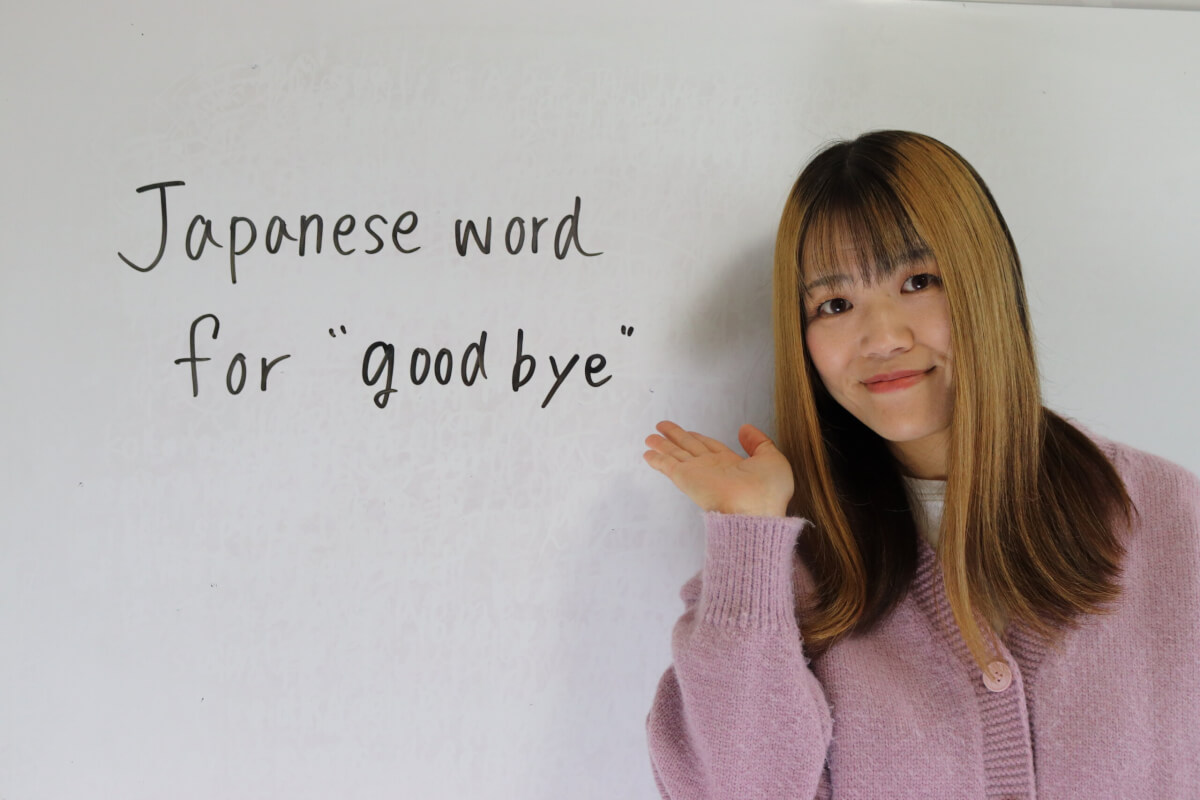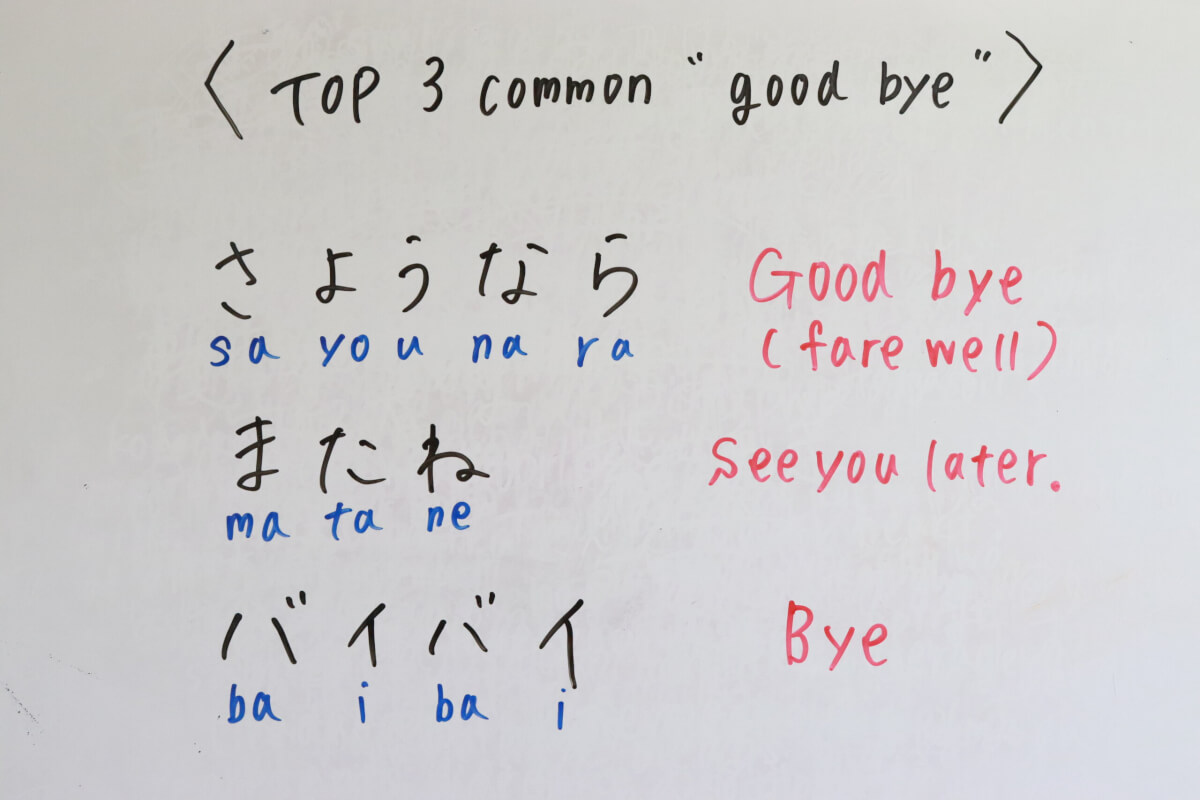- Release Date:
Japanese words for goodbye

Japanese has a range of words and phrases for saying "goodbye," each suited to different situations, levels of formality, and relationships. Here’s a look at some of the most common ways to bid farewell in Japan.
さようなら /sayounara/ – Farewell / Goodbye

"さようなら /sayounara/" is perhaps the most well-known way to say "goodbye" in Japanese, but it implies a longer or more permanent goodbye, and it’s not used for everyday situations.
This is used in more formal or solemn settings, like saying goodbye to a friend who’s moving far away, a teacher at the end of a school term or lover's farewell.
またね /mata ne/ – See You Later
Casual and friendly, "またね /matane/" is what you’d say to friends, family members, or close acquaintances when you plan to see them again soon. "また /mata/" means "again," and "ね /ne/" adds a friendly, conversational tone, making it feel warm and familiar.
バイバイ /bai bai/ – Bye-Bye
Yes, Japanese has a borrowed expression from English. "バイバイ /bai bai/" is casual and is often used by young people, children, or between close friends. It’s friendly, light, and doesn’t carry any formality. I personally use バイバイ /bai bai/ every time to my friend or family when I leave.
じゃあね /jaa ne/ – Bye
Similar to "またね /matane/," "じゃあね /jaane/" is a casual goodbye used among friends. It’s quick and easy, and perfect for informal situations where you’re leaving a group of friends or ending a casual call.
お疲れ様 /otsukaresama/ – Thank You for Your Hard Work / Goodbye (After Work)
Common in workplaces, "お疲れ様 /otsukare sama/" (or the more formal "お疲れ様です /otsukare sama desu/") is a respectful phrase often said at the end of the workday or after a task. It shows appreciation for each other’s effort and serves as a polite goodbye in professional settings.
行ってきます /ittekimasu/ – I’m Going Now
Used when leaving home or stepping out temporarily, "行ってきます /ittekimasu/" literally means "I’m going and will come back." It’s something you’d say when leaving home or an office to indicate you’ll return soon. The response from the person staying is usually "行ってらっしゃい /itte rasshai/" (Itterasshai), which means "Go and come back safely."
お先に失礼します /osaki ni shitsurei shimasu/ – Excuse Me for Leaving First
Common in workplaces, this is used when leaving before others, like when someone leaves work for the day. It’s a polite phrase that acknowledges you’re departing while others might still be working.
Each of these expressions reflects Japan’s nuanced approach to communication, where relationships, context, and formality are always considered. Next time you’re in Japan, try using the right phrase for each situation, and you’ll surely impress the locals!
